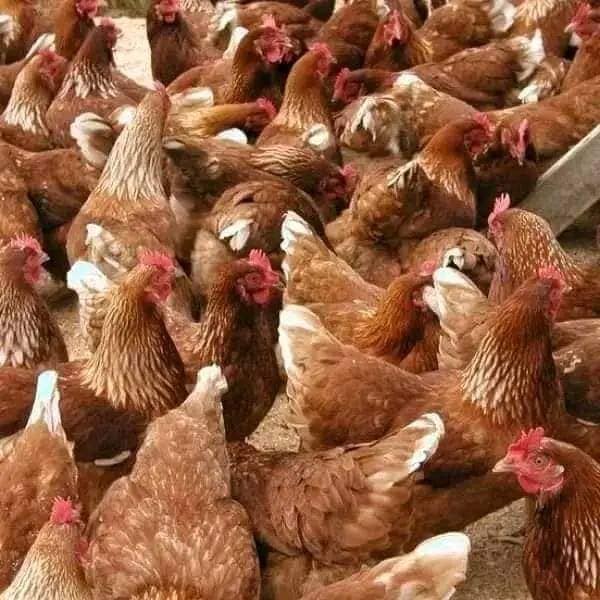Ruth Wanjiru is a young woman filled with happiness due to the strides she has made in her journey of poultry farming. She is a successful indigenous chicken farmer in the Githunguri area of Kiambu County.
We find her inspecting the progress of her homegrown birds, which have become a source of income for her. They are housed in separate coops and grouped according to their age, and the melodious clucking sounds welcome and greet us.
Wanjiru states that she has every reason to smile because of the various benefits she has reaped from her poultry farming venture. “Poultry farming is my daily office,” she says.
She reveals that she ventured into this business in 2018 after years of unsuccessful job hunting since 2013. She holds a Diploma in Hotel and Hospitality Management.
“I did odd jobs here and there in hotels and supermarkets, but they were all short-term employment,” Wanjiru explains.
Like hundreds of thousands of young people searching for employment after completing their studies, she felt like climbing a mountain barefoot instead of wearing shoes. She decided that she would no longer be a slave to job-hunting from one hotel or company to another.
“In 2018, I took a loan of Ksh 100,000 from a cooperative society and used it to start the poultry project,” she says.
She began with 150 day-old indigenous chicken chicks, which cost her Ksh 100 each. Part of the capital was used to construct coops, provide vaccinations and treatment, feed, and other essentials.
However, only 75 chickens survived, and the rest succumbed to various challenges. “Many died because I lacked knowledge about their care, such as feeding schedules, vaccinations, and maintaining cleanliness,” she explains, estimating the losses she incurred.
The survivors generated an income of only Ksh 24,000.
Due to this setback, she took a five-month break and dedicated herself to researching better poultry rearing practices. “I visited successful poultry farmers and learned from my past mistakes,” she says.
Wanjiru, a mother of one, is now a poultry farming guru.
She reveals that she is one of the youth who benefited from the support of the Food and Agriculture Organization (FAO – UN) in Kiambu County. FAO has been promoting initiatives to encourage and boost youth involvement in agriculture and agribusiness in various counties.
Last year, in April, Wanjiru participated in training on best poultry farming practices, sponsored by FAO in collaboration with the Kiambu County government.
“After the training, I received 55 improved indigenous chicken chicks from the Kenya Agricultural and Livestock Research Organization (KALRO) as an individual farmer, and another 20 through our group,” she explains.
Wanjiru is a member of the Pillars of Shakinah group, which has a total of 25 members.
Under the Rural Youth Migration, Social Protection & Agriculture program, Joy Nkoitoi, the coordinator of FAO’s youth employment project, says the program aims to create numerous job opportunities in grassroots agriculture and agribusiness.
Joy explains that the program started in 2017, and so far, young beneficiaries have received quality training in agriculture and agribusiness development.
“They are provided with seeds, fertilizers, livestock, especially poultry and pigs, vaccines, and tools to enable them to excel in agriculture,” Joy says.
She adds that the program targets young people aged between 18 and 35, orphans, vulnerable individuals, and those with various basic needs.
Wanjiru also benefits from government loans for youth and the Uwezo Fund. “These funds are interest-free and have greatly helped improve my poultry farming,” she tells Akilimali during the interview.
We found her with around 300 beautiful chickens, with distinctive black and white markings, including chicks and layers. “My project involves selling chicks, indigenous eggs, and meat,” she says.
However, her journey as a poultry farmer has not been easy. She cites the rising cost of poultry feed as one of the major challenges affecting farmers, especially chicken farmers.
“Poultry feed prices have skyrocketed, leading many to abandon poultry farming,” says David Njoroge, the owner of a livestock products store in Ruiru, Kiambu County.
He states that he has lost more than 30% of his chicken farming customers. “Poultry feed manufacturers complain about the high cost of raw materials, forcing them to pass the burden on to farmers,” Njoroge explains, urging the government to assess the cost of poultry feed in the country.
He warns that if specific measures are not taken, the situation could worsen, leading to a shortage of poultry products such as eggs and chicken.
Despite these challenges, the 36-year-old Wanjiru, who also grows bananas and raises goats, believes that agriculture and agribusiness have the potential to uplift the youth.
“Previously, I relied on office jobs that were not readily available, but now I have found peace in poultry farming. I encourage young people to embrace agriculture and farming because it is a profitable sector,” she emphasizes.
With many young people facing a lack of capital as a barrier, she encourages them to join cooperative societies (Saccos) to access loans.
Furthermore, the government is implementing a program that provides interest-free loans to young people and women, and Wanjiru advises them to take advantage of it.

